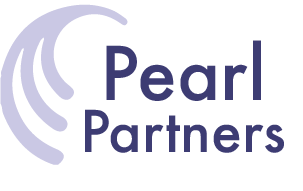There were some good comments in last week's post which caused me to pose a question. So many of you resonated with the idea that a start-up needs to launch an offering that is at the intersection of what the founder wants and what the market wants, and then quickly evolve more fully toward meeting market needs.
My question is about what you hear from investors. In many cases, I hear investors agreeing in principle, but their behaviors sometimes dictate otherwise. By that I mean they are often a catalyst to help the founders look past their own biases to learn more about the needs of their market, and modify their offerings to better satisfy them. The initial influx of cash gives the fledgling company the breathing room to do that. So far, so good.
However, I see varying behaviors regarding what comes next. There are some who are consistent with the idea discussed in last week's post, and they support the company to evolve their offerings to better meet market needs. This usually results in helping the company to more reliably sustain itself, ultimately creating greater value for everyone. However, I also see some investors encouraging the evolution toward what they want, usually based on what they have seen in the past. Sometimes it is good to learn from the past, other times it perpetuates biases that may be less relevant to the specific offering or market. Alternatively, I have seen some investors encourage the evolution toward optimizing an offering for greater manufacturing and distribution efficiency rather than improving for greater relevance so that they can cash out sooner.
The last two paths can be fine if a) the investor's bias happens to be appropriate for the situation or b) the product is truly the best it should be at initial launch. However, the problem that usually arises with these two approaches is that the new company never fully gets the chance to establish a strong relationship with its market. And that's the point. With each evolution, a company has an opportunity strengthen its bonds with the market. If the founders aren't careful, they end up with a company that has stronger bonds with its investors than with its market.
Most savvy investors understand this intellectually, and many will encourage the companies they invest in to build these relationships – knowing that what's good for the company is ultimately good for them. However, I have seen way too many times the start-up equivalent to creating the Corporate Dust Bowl I wrote about a few weeks ago. With shallow roots, any fluctuation in market conditions can sweep away financial gains if they are based on satisfying superficial or transient needs.
I'm curious to hear what you are experiencing. Do your investors follow any of the paths I describe, or are you seeing different behaviors – helpful or difficult?

